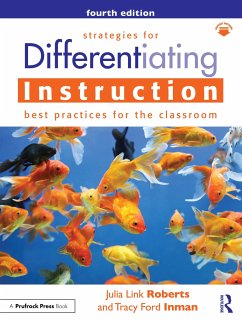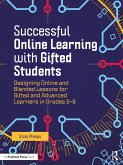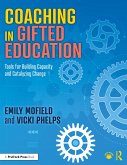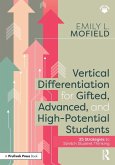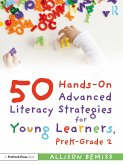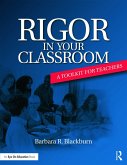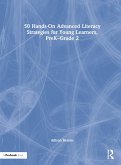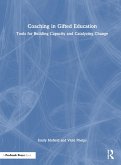This updated edition of Strategies for Differentiating Instruction offers practical approaches that allow all students to make continuous progress and be appropriately challenged by focusing on their various levels of knowledge and readiness to learn.
Written in an accessible, teacher-friendly style, chapters explore methods to tier learning experiences so that all students' unique learning needs are met. The new edition updates the strategies complete with student examples and provides Developing and Assessing Products (DAP) tools for a variety of products as reproducible appendices. Full of research-supported examples and designed specifically for teachers who are new to differentiated instruction, this book offers vetted, practical advice for preassessing students, implementing differentiation strategies, and managing and assessing student learning.
This new edition is a must read for teachers seeking to master the essentials on how to differentiate instruction and address all students' needs, interests, and abilities.
Written in an accessible, teacher-friendly style, chapters explore methods to tier learning experiences so that all students' unique learning needs are met. The new edition updates the strategies complete with student examples and provides Developing and Assessing Products (DAP) tools for a variety of products as reproducible appendices. Full of research-supported examples and designed specifically for teachers who are new to differentiated instruction, this book offers vetted, practical advice for preassessing students, implementing differentiation strategies, and managing and assessing student learning.
This new edition is a must read for teachers seeking to master the essentials on how to differentiate instruction and address all students' needs, interests, and abilities.
"The fourth edition of Strategies for Differentiating Instruction: Best Practices for the Classroom contains a treasure trove of practical suggestions that will make differentiating easier for all teachers to meet a variety of learning differences in young people. It is the most comprehensive book on this topic, and it should be on every teacher's 'must read' list."
Joseph S. Renzulli, University of Connecticut, USA
"As a first-year teacher, this textbook completely changed my classroom approach! The differentiation strategies are easy to use, quick to prepare, and truly work to meet the needs of the individual students in my classroom. The strategies in this book are top of the line, and helped create student excitement for learning because I learned how to meet each child's needs on their level. I would recommend this textbook to all teachers, first through the thirtieth year!"
Phoebe Pohlman, Perryville, MO, USA
"Julia Roberts and Tracy Inman have done it again! Strategies for Differentiating Instruction: Best Practices for the Classroom is the 'must have' instructional resource for every teacher. With clear, straightforward conversations, Roberts and Inman share essential insights about equality in learning, pretesting, and classroom management. Illustrative examples explain how and why instructional differentiation is critical to every student's learning success. Each strategy discussed by the authors is designed to support teachers from start to finish - beginning with student interest inventories and pre-assessments, through brainstorming and tiered instruction, and concluding with assessment resources such as the Developing and Assessing Products (DAP) tools. Do you have a poster project to assess? There is a DAP tool for that! The DAP assessment rubrics are essential evaluative tools that raise the bar for advanced learners while providing essential feedback to students. This is the one book that I cannot live without because it supports every moment of instructional planning, teaching, and assessing student learning."
Christine Deitz, University of Arkansas Little Rock, USA
Joseph S. Renzulli, University of Connecticut, USA
"As a first-year teacher, this textbook completely changed my classroom approach! The differentiation strategies are easy to use, quick to prepare, and truly work to meet the needs of the individual students in my classroom. The strategies in this book are top of the line, and helped create student excitement for learning because I learned how to meet each child's needs on their level. I would recommend this textbook to all teachers, first through the thirtieth year!"
Phoebe Pohlman, Perryville, MO, USA
"Julia Roberts and Tracy Inman have done it again! Strategies for Differentiating Instruction: Best Practices for the Classroom is the 'must have' instructional resource for every teacher. With clear, straightforward conversations, Roberts and Inman share essential insights about equality in learning, pretesting, and classroom management. Illustrative examples explain how and why instructional differentiation is critical to every student's learning success. Each strategy discussed by the authors is designed to support teachers from start to finish - beginning with student interest inventories and pre-assessments, through brainstorming and tiered instruction, and concluding with assessment resources such as the Developing and Assessing Products (DAP) tools. Do you have a poster project to assess? There is a DAP tool for that! The DAP assessment rubrics are essential evaluative tools that raise the bar for advanced learners while providing essential feedback to students. This is the one book that I cannot live without because it supports every moment of instructional planning, teaching, and assessing student learning."
Christine Deitz, University of Arkansas Little Rock, USA

